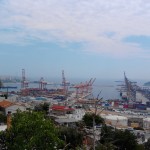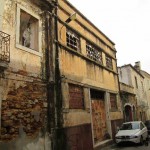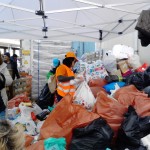The project proposes a bottom-up approach to economic dynamics. It seeks to understand the effects of the economic crisis and of structural adjustment policies in the livelihoods of Southern European ordinary people. Four Southern European countries –Portugal, Italy, Greece and Spain— have been strategically selected as research sites due to their relevance in the current crisis.
In Southern Europe promises of wellbeing and social mobility have become increasingly elusive since 2008. As a result of structural adjustment measures and recession prospects, the middle class horizon of social mobility as a project of the laboring classes has grown improbable. Economists and policy makers have provided analyses and advised on political action to end the economic crisis, but this has resulted in greater precarity and inequality producing social protest as well as nationalistic and xenophobic reactions. The ‘technical’ models that inform these policies show little grounded knowledge about how real people make decisions within social and cultural environments that set the framework for their actions. The Grassroots Economics project proposes a major shift in perspective in the understanding of economic processes, one that takes into account real life possibilities and strategies for making a living. The project investigates the models and theories about economic processes that ordinary people develop through reflecting on their experiences and evaluating their opportunities against the backdrop of state policies and expert discourses that saturate the social field. This observation of ordinary people’s everyday practices and understandings of economic constraints and opportunities will provide a better picture of the existent coordination of economic agents. Research questions are based on the premise that we need to understand how ordinary people’s projects and those of the economic elites and institutional power holders are co-determined.
Acknowledging grassroots economics and comparing it with expert models of the economy will open new theoretical ground that will shed light on present-day economic insecurity and its effect on the political stability of European political communities.
Preliminary findings point to the effects of rent seeking procedures at the different scales of social interaction. Faced with the failure of the competitive market and the democratic state to provide a decent livelihood, people respond to the effects of monopoly closure expressed in elite corruption and capital concentration by claiming citizenship rents, kinship rents and proximity rents. In an analogous move to that of transnational firms’ tax avoidance schemes that result in profit accumulation without investment, ordinary people –in particular the growing mass of self-employed—adopt strategies of petty tax avoidance in order to survive. Both developments endanger the fiscal sustainability of the state threatening public provisioning of basic goods (infrastructures, health system, education, and housing) that are entrenched in democratic polities as citizenship entitlements. This situation further widens common citizens’ breakdown of trust both in competitive capitalist models and in the liberal democratic state, exerting pressure towards institutional realignments.
RESEARCH LOCATIONS
With the help of the steering committee, the research team has defined the regions where field sites will be located in relation to the differential impact of the present crisis.
- Places where the crisis was a MAJOR Shock. Dynamic regions previous to the 2008 crisis, generally with a structure of SME, employment growth, high expectations for the future. In these regions the crisis shatters generally upwardly mobile prospects and projects of livelihood.
- Places where this crisis was part of a process of RECURRENT shocks. De-industrializing regions with large fordist (strategic) industries (public or private) that have suffered several bouts of restructuring since the 1980s with large unemployment attached to it and various attempts to diversify the economy often through public (including EU) funds. Here the crisis makes an existing process more acute.
- Places where the crisis is a STRUCTURAL reality for the many. These places can be defined as in permanent distress. These are often regions with historical emigration patterns and chronic unemployment problems, and with heavy dependency on state transfers and employment.
Another complementary aspect that should be considered together with the above general typology in the selection of field site locations is the different impact of public and private sectors in the opportunities to earn a livelihood and make long term inter-generational projects for local people in the various regions. Public sector includes public industry and public service employment, social transfers such as unemployment benefits and retirement pensions as well as investment in public infrastructure and services. It underscores the stability offered in protected state employment as well as the centrality of income provided through actual transfers such as retirement pensions. The added value of public (particularly tenured civil servant positions) as compared to private employment seems to be its relative protection, which generates trust in the viability of long-term livelihood projects. The added value of private employment during boom periods of growth is the apparent easiness of entry in job markets with high demand and the relative high wages enabling increased consumption further enhanced by credit opportunities attached to wage income. The crisis might affect households in a radically different manner according to the greater or lesser presence of the state in the regions’ economic structure. The research seeks to assess the relevance of public/ private employment in terms of wages, long-term security, consumption and life-projects both in periods of economic boom and during crises and under austerity measures in the various regions.
The design of the project is framed within a political economy and historically grounded understanding of social and cultural processes of regional and class differentiation. It is a collective project that requires strong collaboration between researchers doing fieldwork in different sites. This will include the sharing of ethnographic material and other data according to protocols that will be developed before fieldwork.















